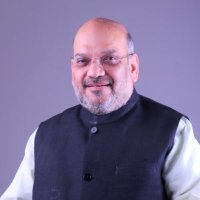India, like the rest of the world, is grappling with the ongoing impacts of the Covid-19. Till the time a vaccine is not developed enhancing the body’s natural defence system plays an important role in maintaining optimum health.
After acute Covid-19 illness, recovered patients may continue to report a wide variety of signs and symptoms including fatigue, body ache, cough, sore throat, difficulty in breathing, etc. As of now, there is limited evidence of post-Covid sequelae and further research is required and is being actively pursued. A holistic approach is required to follow up care and well-being of all post-Covid recovering patients.
Integrated holistic approach for managing patients who have recovered enough from Covid for care at home. It is not meant to be used as preventive/curative therapy. The recovery period is likely to be longer for patients who suffered from a more severe form of the disease and those with pre-existing illness.
Union Health Ministry issues ‘post-Covid-19 management protocol’; use of Chyawanprash, Yoga exercises, Pranayama, daily regimens and personal hygiene guidelines can be helpful strategies in controlling the spread of Covid-19.
POST-COVID FOLLOW UP PROTOCOL
1. At Individual Level
- Continue COVID appropriate behaviour (use of mask, hand and respiratory hygiene, physical distancing)
- Drink an adequate amount of warm water (if not contra-indicated)
- Mild/moderate exercise
– Daily practice of Yogasana, Pranayama and meditation, as much as health permits or as prescribed.
– Breathing exercises as prescribed by treating physician.
– Daily morning or evening walk at a comfortable pace as tolerated. - A balanced nutritious diet, preferably easy to digest freshly cooked soft diet.
- Avoid smoking and consumption of alcohol.
Take care of your mental health. For any psychosocial support please call NIMHANS helpline #080-46110007.
#BadalkarApnaVyavaharKareinCoronaParVaar #TogetherAgainstCovid19 pic.twitter.com/y1aCAUESvv
— Ministry of Health (@MoHFW_INDIA) September 12, 2020
- Take regular medications as advised for Covid and also for managing comorbidities, if any. Doctor to be always informed about all medicines that the individual is taking (allopathic/AYUSH) so as to avoid prescription interaction.
YOU MAY LIKE TO READ: Those Who Recover From Infection Also Should Follow COVID-Appropriate Behaviours: Health Ministry
- Self-health monitoring at home – temperature, blood pressure, blood sugar (especially, if diabetic), pulse oximetry etc (if medically advised).
- If there is persistent dry cough/sore throat, do saline gargles and take steam inhalation. The addition of herbs/spices for gargling steam inhalation. Cough medications should be taken on the advice of a medical doctor or qualified practitioner of Ayush.
- Look for early warning signs like high-grade fever, breathlessness, Sp02 <95%, unexplained chest pain, new onset of confusion, focal weakness.
#Naturopathy works on the principle of prevention is better than cure. It believes that by following the right preventive measures we can make our body strong enough to fight any disease. pic.twitter.com/EFpGuYPDDY
— Ministry of Ayush (@moayush) August 17, 2020
2. At Community Level
- Recovered individuals to share their positive experiences with their friends and relatives using social media, community leaders, opinion leaders, religious leaders for creating awareness, dispelling myths and stigma.
- Take the support of community-based self-help groups, civil society organizations, and qualified professionals for the recovery and rehabilitation process (medical, social, occupational, livelihood)
- Seek psycho-social support from peers, community health workers, counsellor. If required seek mental health support service.
- Participate in group sessions of Yoga, Meditation etc. while taking all due precautions like physical distancing.
I am seeing a great increase in discussion on topics related to fitness, staying healthy and boosting immunity systems. This is a great sign. After #MannKiBaat I also shared Yoga and Yoga Nidra videos which I hope you’ve seen.
— Narendra Modi (@narendramodi) April 1, 2020
3. In a healthcare facility setting
- The first follow-up visit (physical/telephonic) should be within 7 days after discharge, preferably at the hospital where he/she underwent treatment.
- Subsequent treatment/follow up visits may be with the nearest qualified allopathic/AYUSH practitioner/medical facility of other systems of medicine.
- Poly-therapy is to be avoided due to potential for an unknown drug-drug interaction, which may lead to Serious Adverse Events (SAE) or Adverse Effects (AE).
- The patients who had undergone home isolation, if they complain of persisting symptoms, will visit the nearest health facility.
- Severe cases requiring critical care support will require more stringent follow-up.
AYUSH medicine: Details of medicines and their dosage
- Take Chyavanprash 10gm (1tsp) in the morning. Diabetics should take sugar-free Chyavanprash.
- Drink herbal tea/decoction (Kadha) made from Tulsi (Basil), Dalchini (Cinnamon), Kalimirch (Black pepper), Giloy, Shunthi (Dry Ginger) and Munakka (Raisin) – once or twice a day. Add jaggery (natural sugar) and/or fresh lemon juice to your taste, if needed.
- Half teaspoon Haldi (turmeric) powder in 150 ml hot milk – once or twice a day
- Spices like Haldi (Turmeric), Jeera (Cumin), Dhaniya (Coriander) and Lahsun (Garlic) are recommended in cooking.
Use of Chyawanprash in the morning (1 teaspoonful) with lukewarm water/milk is highly recommended (under the direction of Registered Ayurveda physician) as in the clinical practice Chyawanprash is believed to be effective in the post-recovery period.











